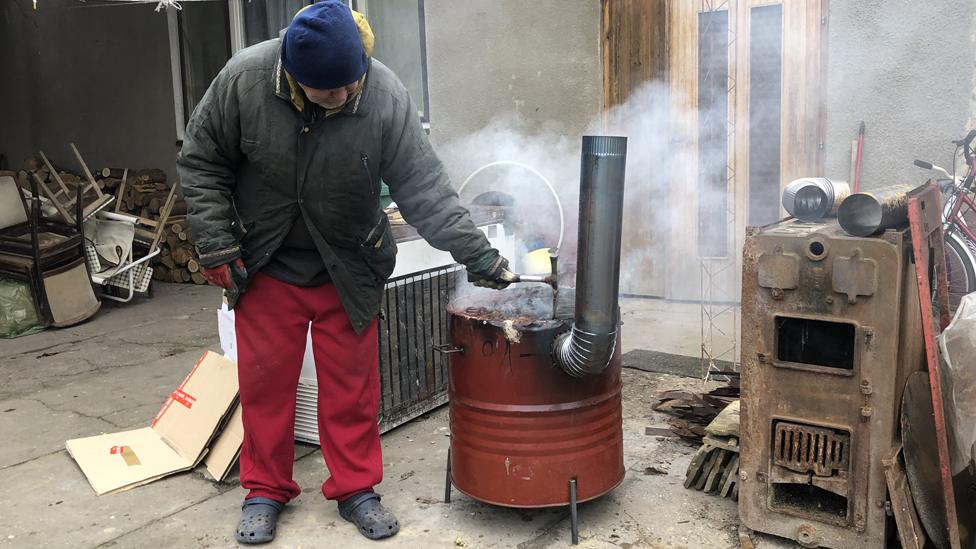Helping refugees for longer 'could save UK money'
- Published
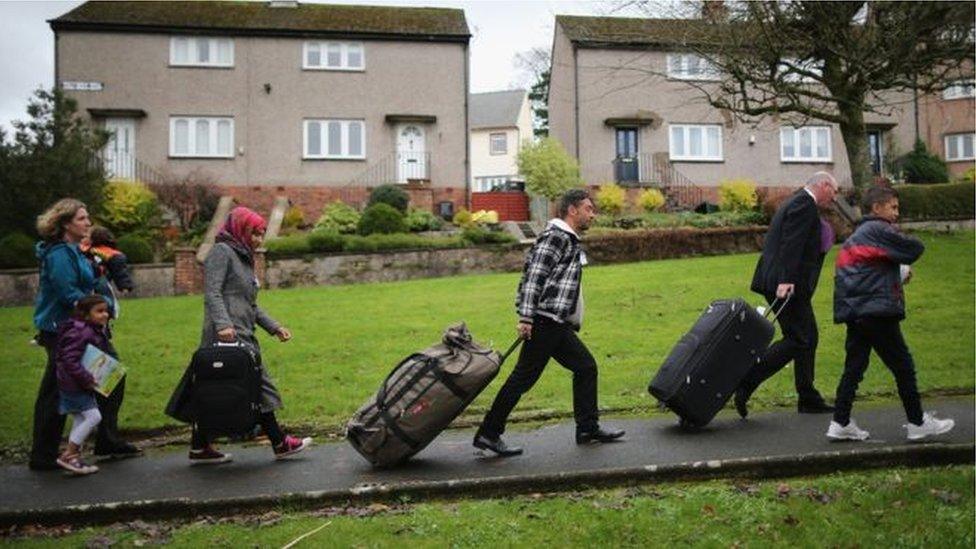
Refugee families arriving on the Isle of Bute in 2015, as part of the UK's pledge to welcome 20,000 Syrian refugees by 2020
The government could save millions of pounds each year if it helped refugees for longer when they arrived in the UK, new research has suggested.
Currently, after claiming asylum people receive financial help until four weeks after being granted refugee status.
But a report from the British Red Cross and the London School of Economics said doubling that time to eight weeks could save public money in the long run.
The government said the UK had "a proud record" of helping vulnerable people.
After arriving in the UK and submitting a claim for asylum with the Home Office, a person is initially entitled to just under £40 a week from the government and access to accommodation.
After being granted refugee status, they then have four weeks to find a home and employment or apply for mainstream benefits.
But many new arrivals end up destitute, the new report said.
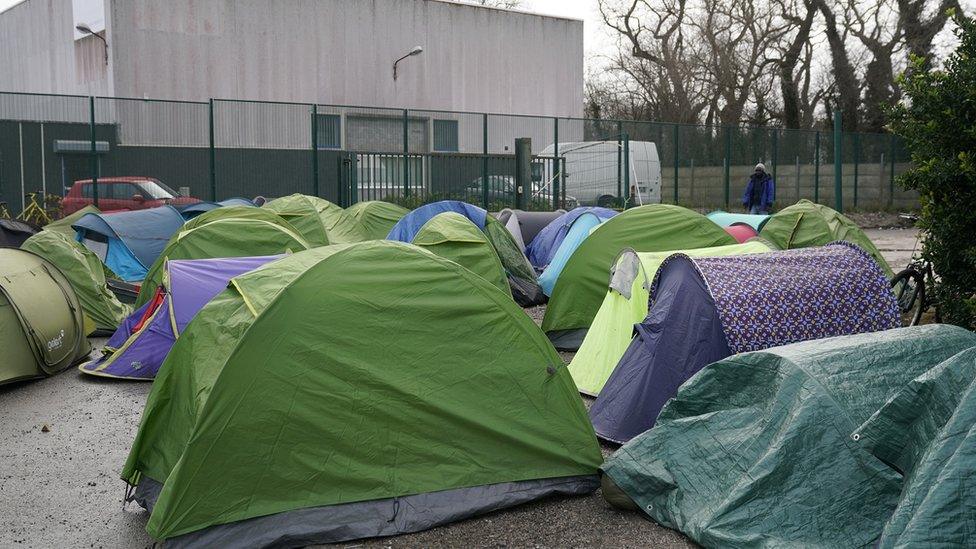
Migrants camp on an industrial estate in Calais, France, where some migrants pass through on their way to the UK
The British Red Cross suggested that if financial support was extended to eight weeks, these refugees would be able to establish themselves and not end up looking to the state for so much help.
Their report said it could benefit the economy by £7m a year, because it would ease pressure on public services like the NHS and local authorities.
In response, the Home Office said: "The UK has a proud record of providing protection to vulnerable individuals and helping them to rebuild their lives here.
"The government is committed to ensuring vulnerable refugees get the support they need to find work, get assistance from their local authority to find housing or apply for mainstream benefits."
The UK grants "refugee status", external to those who are unable to live in their own country for fear of persecution because of race, religion, nationality, political opinion or other factors such as sexual orientation.
A former refugee who fled conflict in Eritrea is now a qualified football coach in Hull
A successful application usually allows someone leave to remain for five years with the opportunity after that to apply for indefinite leave to remain.
Over the past five years, more than 17,000 refugees who fled the Syrian war have settled in Britain.
Another 3,000 refugees are expected to arrive by the end of 2020 under the government's Vulnerable Persons Resettlement Scheme (VPRS).
Last month, a watchdog found that some refugees seeking medical help were struggling to access interpreters.
- Published9 September 2019
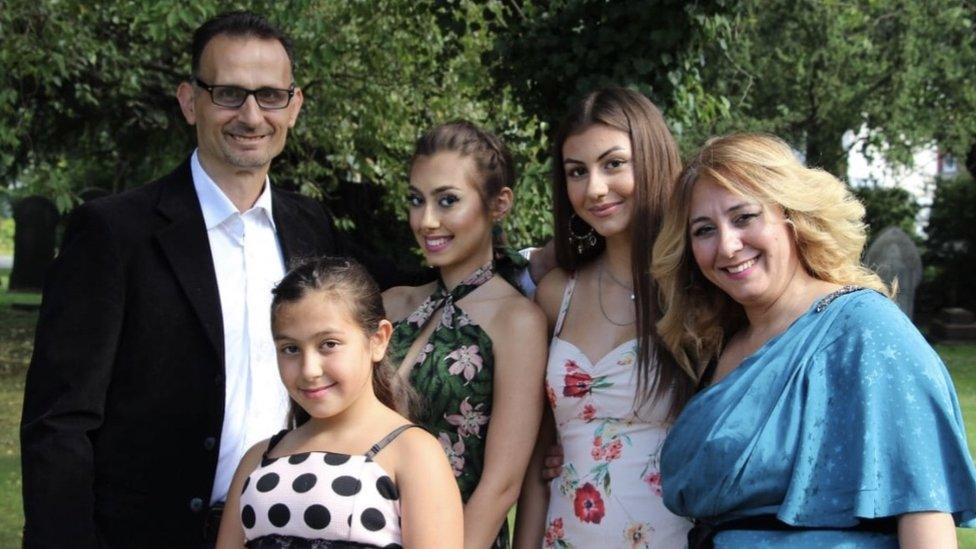
- Published24 April 2018
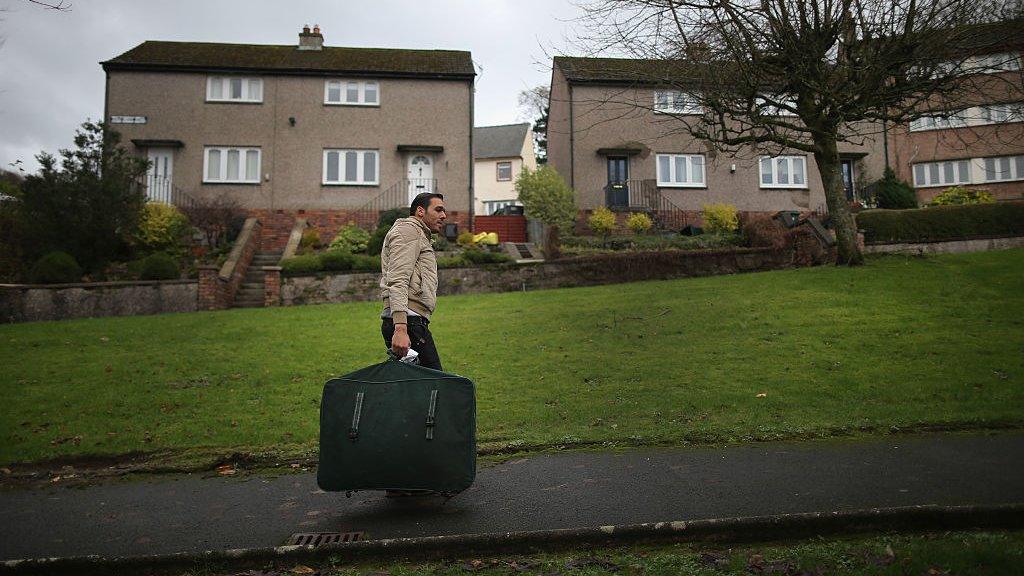
- Published28 January 2020

- Published20 January 2020
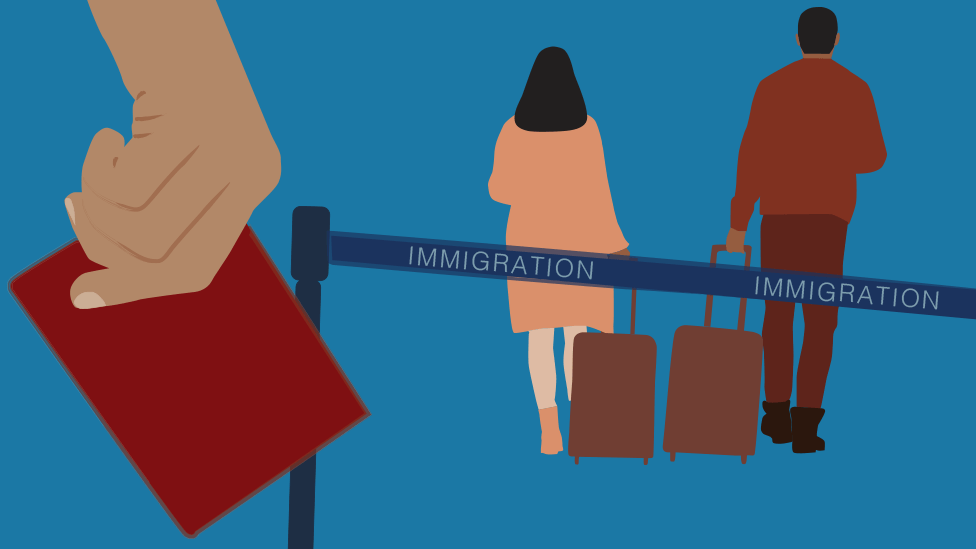
- Published10 December 2019
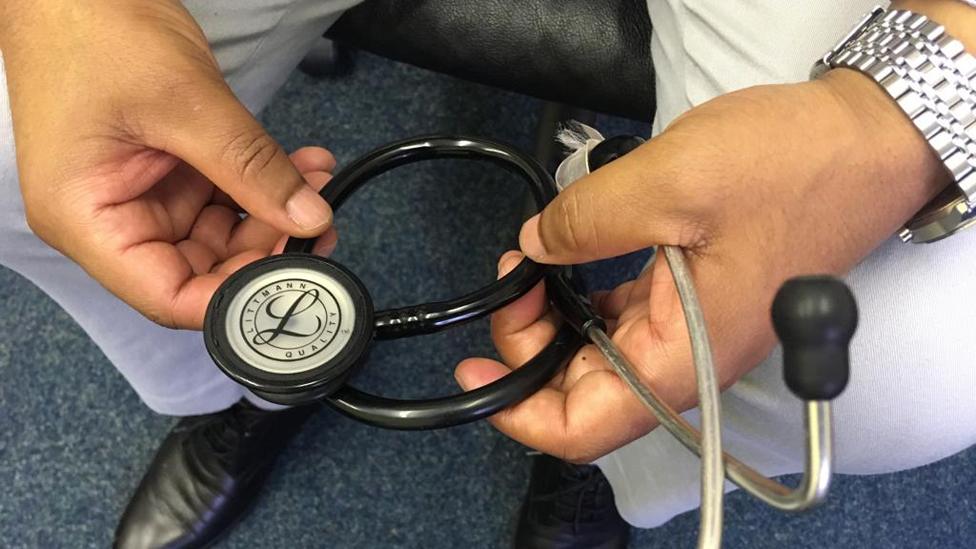
- Published21 January 2020
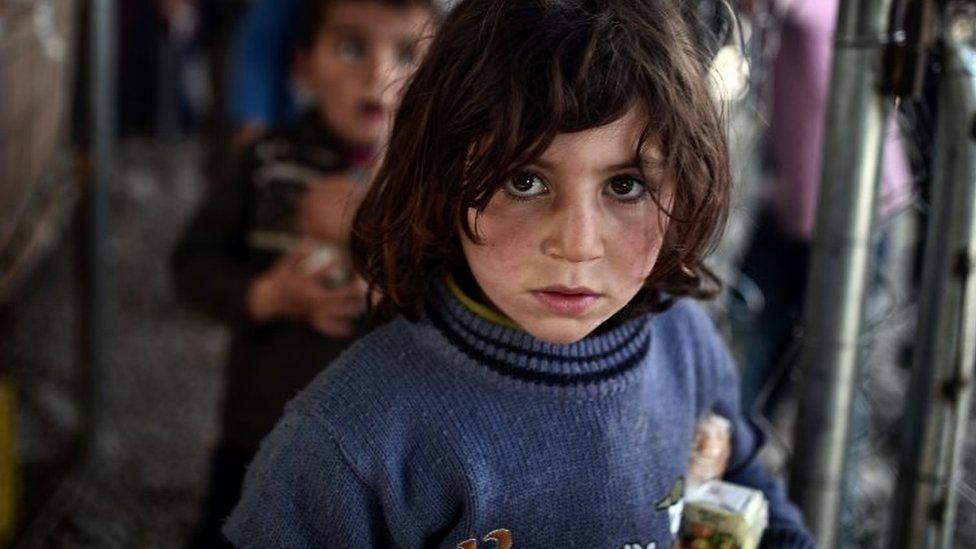
- Published20 January 2020

- Published17 January 2020
